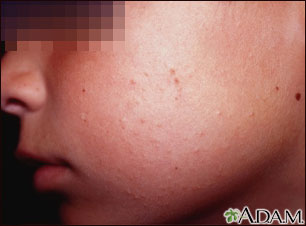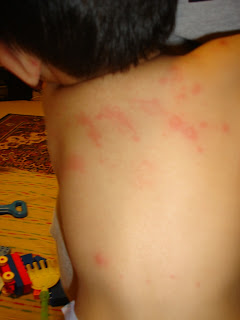Sublingual Immunotherapy: Allergy “Drops” Can Offer Relief, Without the Sting of a Shot!
For nearly a century, doctors have known that the best way to control environmental allergy symptoms is by retraining your immune system to tolerate substances that you are currently over-reacting to. This is known as “immunotherapy”.
Until recently, immunotherapy required multiple small injections over a period of time (subcutaneous immunotherapy). Although allergy injection treatment is very safe and effective, weekly trips to the doctor for shots are not always convenient for today’s busy families. This means that many patients are not able to take advantage of allergen immunotherapy’s numerous health benefits, such as decreased need for medications, improved hay fever and asthma control, prevention of asthma in high-risk children, and a better night’s sleep.
Sublingual immunotherapy, or allergy drops, can offer the benefits of immunotherapy to a wider array of patients. These drops are made from the same FDA-approved allergen extracts used in allergy injection treatments. Sublingual immunotherapy is the most commonly prescribed form of immunotherapy in Europe, and has helped patients manage pollen, animal, mold, and dust mite allergies. Because allergy drops have a very low rate of allergic reactions, they are considered safe enough to give in the home setting. Imagine, reversing your allergies in the comfort and convenience of your own home!
Here’s how the process works: after determination of your environmental sensitivities in the office, your allergist creates a customized set of allergy drops for you or your child to self-administer under the tongue, on a daily basis. Over the course of a few weeks, your dose will gradually increase to what is known as a “maintenance” dose. This is the daily dose required to fully retrain your immune system, so that it no longer produces allergic reactions in response to allergen exposure. Based on extensive experience with allergy injection therapy, a full course of immunotherapy usually takes 3-5 years, after which you can expect to continue the benefits for up to another 10 years after discontinuation. Investigations are still underway to determine if this sustained period of symptom improvement after stopping therapy also applies to allergy "drops", but preliminary studies suggest that it may.
You should know that sublingual immunotherapy is considered an "off-label" use of an FDA-approved product - this means that some health insurance plans may not reimburse for the costs of treatment. Generally, flexible spending accounts and health savings accounts can be used to pay for sublingual immunotherapy. Like all medical therapies, allergy drops are not suitable for every patient. There is evidence that allergy drops work very well for patients with a few specific allergies, but allergy injections work better for patients with multiple environmental allergies. In addition, only environmental extracts are FDA-approved for allergen immunotherapy. (Immunotherapy for food allergies is still under investigation to determine the safest methods of treatment.) Only your allergy specialist can determine which type of treatment is the best fit for you or your child, so talk to your doctor.
If you’re tired of taking medication every day for allergies or asthma, and want to treat the cause- allergen immunotherapy may be right for you. Find an allergist, and find relief!



Do you know of doctor's in the Northern suburbs that provide this kind of allergy therapy?
ReplyDeleteThis is very useful information about the immunotherapy allergy drops. It is also best for allergy disease reduce. Thanks for sharing.
ReplyDeleteImmunotherapy